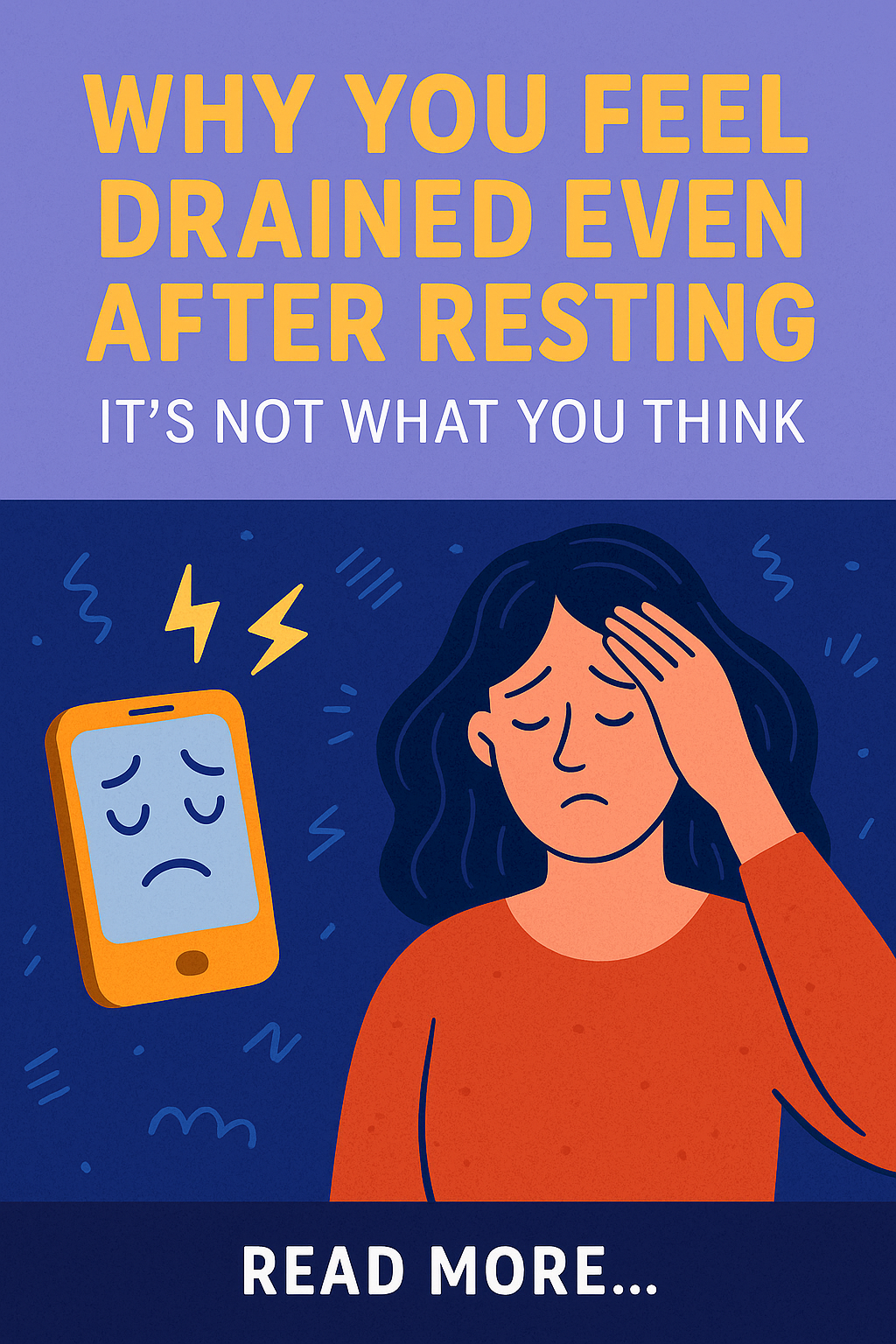Have you ever taken a full day off, done absolutely nothing strenuous, and still felt mentally and physically exhausted? If so, you’re not imagining it. According to recent neuroscience research, rest is no longer just about sleep—it’s about how we manage our brains in a world overloaded with digital noise.
Understanding Modern Fatigue
Feeling drained today doesn’t always come from physical labor. Instead, our mental exhaustion is more linked to constant stimulation, digital multitasking, and neurochemical overload.
1. Glutamate Overload in the Brain
Recent studies show that prolonged mental tasks cause a buildup of glutamate in the prefrontal cortex—the brain region responsible for decision-making. This buildup leads to mental fatigue and reduced cognitive performance.
2. Constant Digital Exposure Triggers Mental Exhaustion
Every notification, scroll, and video stimulates your brain’s attention system. Over time, this “digital overload” leads to anxiety, forgetfulness, and burnout symptoms.
3. Social Media Fatigue Is Real
Heavy social media usage is linked with higher stress and lower self-control. One study found that users often experience information fatigue, reducing their emotional resilience.
4. Your Attention Is Always Divided
The phenomenon of “continuous partial attention”—where you’re never fully focused—keeps your brain in a state of constant low-level stress. This prevents deep rest even when you’re technically relaxing.
5. Poor Sleep Caused by Screens
Blue light from screens suppresses melatonin, the hormone that signals your body it’s time to sleep. Without quality sleep, your brain doesn’t get the reset it desperately needs.
Source: Digital Detox – Wikipedia
6. Your Brain Was Never Meant for This Pace
Humans evolved with long periods of silence, slowness, and physical activity. Modern tech has created an unnatural mental environment that we’ve never biologically adapted to handle.
How to Truly Recharge – Backed by Neuroscience
- Take intentional tech breaks – Try 1 hour per day without screens.
- Use your brain differently – Read books, draw, or reflect in silence.
- Practice mindfulness – Even 10 minutes a day reduces cortisol and clears your thoughts.
- Get into nature – Green spaces have proven restorative effects on attention and mood.
- Sleep better – Avoid screens 1 hour before bed and keep your room dark and cool.
- Mono-task – Train your brain to focus on one thing at a time to rebuild attention strength.
So next time you feel tired after “doing nothing,” remember—true rest comes not just from lying down, but from shutting out the noise your brain never stops processing.

